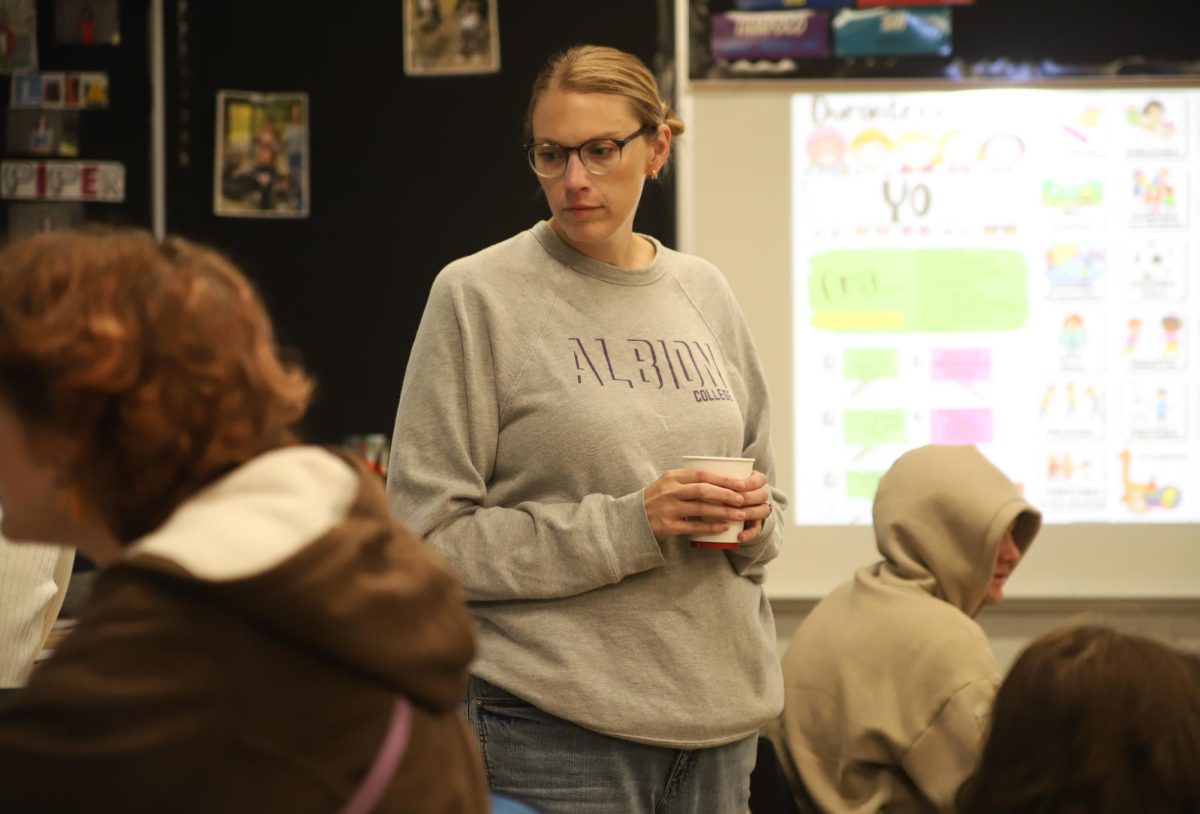Robert Lavelanet’s co-workers saved him his job. They saved the Lavelanet forum from having to transition to a third forum leader in three years, they saved CHS’s social studies department from searching for a non-Lavelanet entity to teach their painstakingly-curated Introduction to World History curriculum in its pilot year and they saved Lavelanet from needing to make himself at home at a brand-new school.
CHS got to keep him, but in the mess of the Ann Arbor Public School district’s (AAPS’s) recent budget deficit and subsequent rearrangement, 55 teachers across Ann Arbor faced potential layoffs and many more faced grade, school and even subject changes. After 86 teachers elected to retire with the support of an incentive program (a $15,000 lump-sum contribution to their retirement funds) and many more departed of their own volition, all but 10 educators were welcomed back for the 2024-25 school year.
It was a chaotic sequence, to say the least.
In case you haven’t been following the saga, AAPS added 480 staff roles over the course of the past decade, despite a dip in enrollment of 1,123 students between the 2020-21 and 2023-24 school years. The combination of that ebb and flow, paired with an administrative oversight worth $14 million left the district with a $25 million shortfall and at their feet and a host of impassioned community members in their faces. The ensuing remediation plan included controversial cuts including the elimination of elementary school world language programs and reduction of middle and high school band and orchestra co-teaching positions.
“Do you really want this as your legacy?” A community member at a May 2024 School Board meeting said. “[To be] the board that cuts music?”
Ultimately, staff dismissals represented the vast majority of AAPS’s $20.4 million in total reductions. The distribution of pink slips was determined first by the presence of a significant disciplinary write-up, second by evaluation records (which are performed twice a year for least experienced educators, but are reduced in frequency for longer-serving employees) and third by seniority.
Lavelanet, who had left the district in 2019 and returned in 2023 hadn’t ever been written up, but also hadn’t been formally evaluated since his return to CHS. Lavelanet’s ratings hadn’t reported him as anything less than a “highly effective” teacher, so when he got the notice that he was on the list of staff to be let go, Lavelanet figured it was just a matter of seniority.
“I was a newer teacher and I had recently been rehired, so I thought, ‘okay, well, them’s the breaks, essentially,’” Lavelanet said. “I was very sad about it of course, but I was also afraid that if it wasn’t me it would be someone else who was just more senior than I was and I just wasn’t interested in fighting it then.”
When Lavelanet broke the news in a tearful confession to his forum that resulted in an exponentially more tearful reaction out of his forumettes, he spun the outcome into a lesson.
“I thought it was the real truth that from a purely professional or academic stance I could not save myself,” Lavelanet said. “I thought I had tried my best and failed or didn’t make the mark, so to say. And that was sad to me, but I also thought it was a really good lesson for my forum that sometimes you try your best and things just don’t work out.”
Despite Lavelanet’s initial paralysis, fellow teachers Liz Stern and Ryan Silvester were determined to get to the bottom of the situation. Upon scrutinizing the contract’s language, Silvester (who cited “justice” as one of his foremost motivators) discovered that Lavelanet’s evaluation from his first stint with AAPS had been erroneously overlooked. Thus, Lavelanet — who hadn’t done a mid-year evaluation since he wasn’t a rookie teacher and was in the process of wrapping up a successful end-of-year assessment with Dean Rebecca Westrate — was lumped in with the district’s newest teachers who hadn’t yet been evaluated. Soon after Silvester’s discovery, Stern reached out to the district, informing administration that the reason Lavelanet didn’t have a mid-year evaluation wasn’t because he wasn’t performing well as he believes AAPS officials may have originally presumed, but that he hadn’t been assessed because he was in fact a returning teacher.
Less than two weeks after receiving Stern’s message, district leadership contacted Lavelanet to admit their mistake and rescind their previous verdict. Shortly after, Lavelanet gifted Stern a bottle of champagne and Silvester a pair of silly socks in return for their efforts.
Though he spent the in-between time “wallowing” and hadn’t embarked on a true job search yet, the whole affair wasn’t lacking in turbulence.
Eventually though, after the upheaval was righted, an even better lesson to share with his formerly-glum forum emerged: Lavelanet could have been a terrific teacher, but if he hadn’t cultivated the relationships that he did with his colleagues he would likely not be employed at CHS today.
“I clearly felt that Robert was not getting a just shake at what was happening here, but I think selfishness is another factor,” Silvester said. “We wanted Robert to stay, and we had spent so much time working on this new world history curriculum, and Robert was and is the person to lead this class … When I pictured this program, I pictured Robert as the pilot. We’re fortunate to have him.”
While Lavelanet’s circumstance was eventually resolved, it was a district-level error not entirely dissimilar from the one that led to AAPS’s financial predicament in the first place.
AAPS school board trustee of eight years, Jeffrey Gaynor — who spoke solely for himself, not the board, nor the district — maintained that the board must be as open and transparent as possible and take its monitoring and oversight responsibilities “much more seriously” in order to prevent future mishaps.
“When I asked questions of the administrator giving a monthly financial report earlier this year, I was admonished by another trustee for doing so,” Gaynor said. “If I ask for information that is not provided by administration, other trustees won’t back up the request.”
He also asserted that if trustees only hear about what’s happening in the district from central administration, rather than from staff, parents and students, they’ll have a “limited and distorted” understanding of matters at hand. Gaynor believes it’s the staff’s commitment, intelligence and care that strengthen the district and that in spite of students’ caregiver’s disagreement with many administrative decisions over the course of this calendar year, they made sure to mention to trustees and district leadership that their children’s teachers — just like Lavelanet — are great. Just like Silvester and Stern displayed, their jobs are worth saving.










